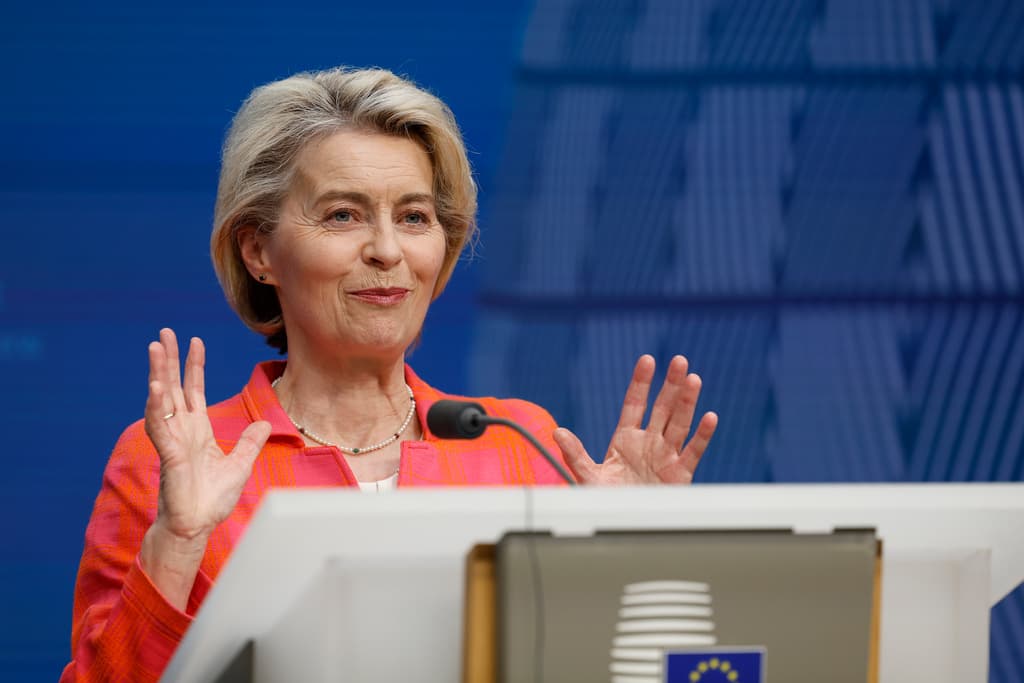The hour of destiny is approaching for Ursula von der Leyen's continuation as President of the EU Commission.
The battle is portrayed as a choice between stability and Viktor Orbán.
The newly elected EU Parliament will hold its first session in Strasbourg next week. Everything begins with the election of the Speaker on Tuesday, where the conservative Maltese Roberta Metsola is the clear favourite. This will be followed by the election of, among others, Vice-Speakers and a debate on the latest EU summit before the struggle for the new Commission President begins next Thursday, July 18.
Ursula von der Leyen will then have the opportunity to deliver a keynote speech in a morning debate on what she wants to achieve over the next five years. At 1 pm, the members will line up to cast their anonymous ballots. Everything should be counted by around 3 pm.
A tight race
On paper, von der Leyen has a stable majority in the three centrist groups in Parliament - the conservative EPP, the liberal RE, and the social democratic S&D - which together have 401 members. The vote is still expected to be close, as individual parties and members within the groups have announced that they will not support her.
She is also opposed by the far-right, including the French National Rally and the Hungarian ruling party Fidesz in the newly formed party group European Patriots (PFE).
Von der Leyen needs to get at least 361 yes-votes. Otherwise, the EU countries' heads of state and government must propose another candidate for the job within a month.
EPP group leader Manfred Weber is clear about what is at stake.
If von der Leyen were to fail, we risk a Europe with great instability. There would be a happy man, and that is Viktor Orbán, says Weber according to news site Politico Europe.
Green support?
To be sure, von der Leyen will likely need to rely on votes from other party groups as well. The Greens, however, sound cautiously positive after a meeting with the German on Wednesday.
We had a very constructive exchange on priorities, says one of the two group leaders, German Terry Reintke, at a press conference in Parliament, according to news site Euractiv.
Colleague Bas Eickhout flags that the group would prefer to vote as a whole, but will decide only after the debate next Thursday.
This is how the party groups have formed in the newly elected EU Parliament:
EPP (Christian democratic conservatives): 188 members, including 4 from M and 1 from KD. Group leader Manfred Weber, Germany
S&D (social democrats): 136 members, including 5 from S. Group leader Iratxe García Pérez, Spain
PFE (EU-critical nationalists): 84 members, no Swedes. Group leader Jordan Bardella, France
ECR (EU-sceptical conservatives): 78 members, including 3 from SD. Group leader Nicola Procaccini, Italy and Joachim Brudzinski, Poland
RE (liberals): 77 members, including 2 from C and 1 from L. Group leader Valérie Hayer, France
The Greens/EFA (environmentalists and regional parties): 53 members, including 3 from MP. Group leader Terry Reintke, Germany and Bas Eickhout, Netherlands
The Left (left-wing parties): 46 members, including 2 from V. Group leader Manon Aubry, France and Martin Schirdewan, Germany
ESN (EU-critical nationalists): 25 members, no Swedes. Group leader René Aust, Germany and Stanislaw Tyszka, Poland
33 members are still unaffiliated, including 6 from the German left-wing nationalist BSW and 5 from the Slovakian ruling party Smer.
Source: EU Parliament






